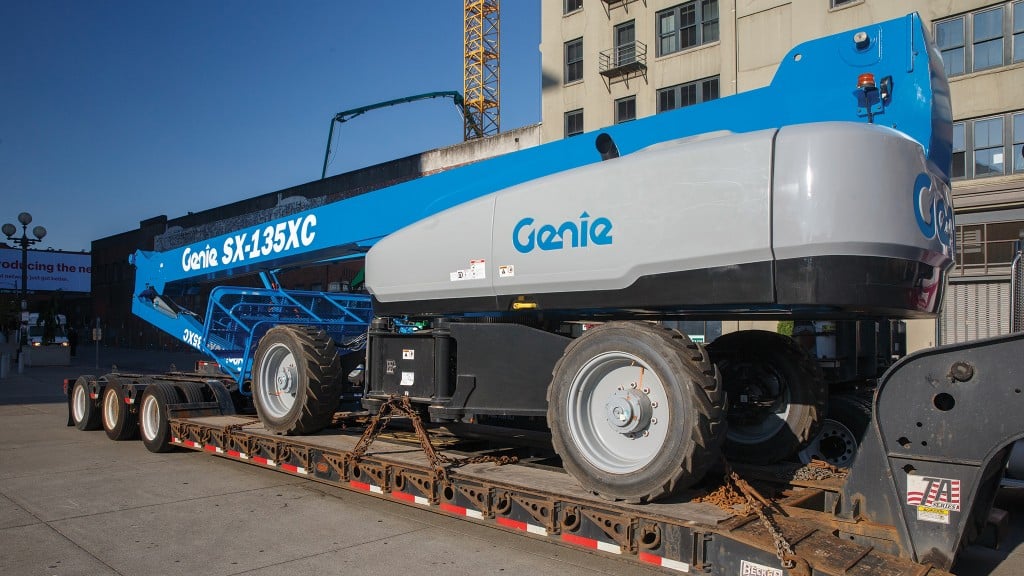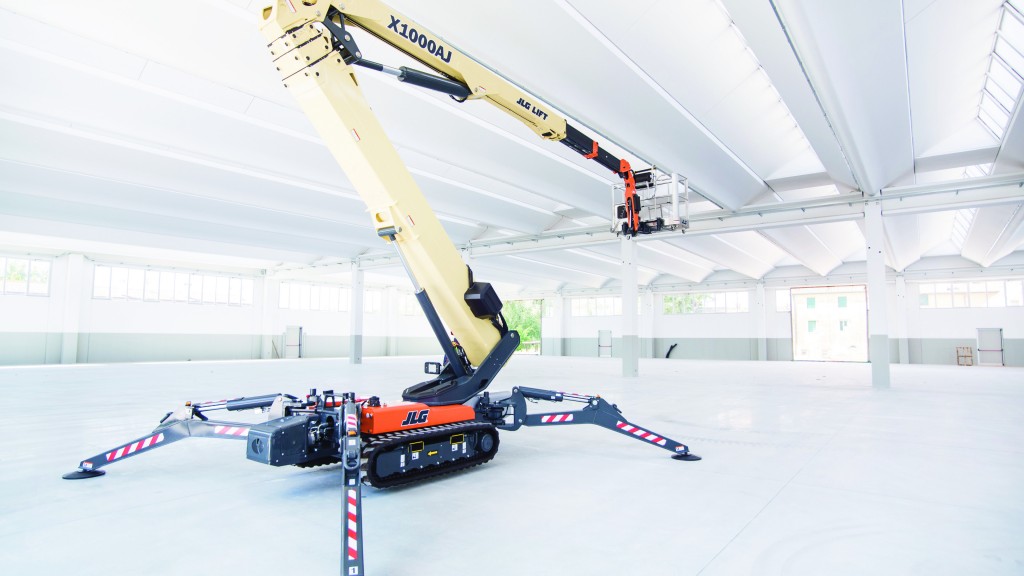
From trailer-mounted boom lifts to the highest-reaching super booms, before work can begin the equipment needs transportation to the job site. And, while models and equipment types will vary in their requirements and procedures, two important safety rules apply across models and equipment types:
- Read the Operator's Manual, which provides step-by-step instructions to ensure the boom is loaded safely and efficiently; and
- When loading and unloading equipment, the transport vehicle should be parked on a firm surface and secured to prevent it from rolling.
With those first two steps done, it's time to prepare your equipment for transport.
The correct transport position for a boom lift
When transporting a boom lift, make sure that platforms, jibs, booms, and axles are fully lowered and/or retracted and in transport position. The Operator's Manual recommends the correct "transport position" for the specific model you're loading. Whenever possible, the boom should be transported with the platform floor horizontal to the transport trailer bed. Select booms and trailer combinations do not accommodate this orientation due to length. In this case, follow the Operator's Manual for positioning and securing the platform.
Hazards to watch for when loading a boom lift
Additionally, watch out for hazards during loading, including tip-over hazards, collision hazards resulting from limited sight distance and/or blind spots, and overhead hazards such as power lines. Only qualified aerial lift operators should move the machine on or off the transport truck. Once the boom is loaded, look over the entire machine for any loose or unsecured items. Always use a turntable rotation lock pin, checking to make sure the key switch is in the "off" position, and then remove the key before beginning transport.
Use the right restraints to secure the boom lift
To secure the platform, appropriate restraints based on weight and local regulations should be placed parallel to the machine's restraint guides, taking care that you don't use too much downward force to secure them. Put some sort of force-absorbing material such as foam, rubber, or wood opposite the restraints to reduce any movement of the restraint during transport. The chassis of the boom also must be secured to the transportation platform using a minimum of six chains. Make sure the chains have ample load capacity and adjust the rigging to prevent any damage to the chains or the lift. For a diagram, refer to the Transport and Lifting Instructions in the Operator's Manual.
What's the right towing capacity for transporting a trailer-mounted boom lift?
Because they can be towed behind a pickup or SUV, trailer-mounted boom lifts can be a productive and practical option for the right job site. Again, Steps 1 and 2 in the safety rules mentioned at the beginning of this article apply. Additionally, it's important to check the vehicle's towing capacity because the weight of trailer-mounted booms can fluctuate based on the model and options. Once the necessary towing capacity is confirmed, safety chains and brake cables need to be attached to the vehicle. Note that the chains should cross under the hitch.
Best driving practices for boom lift transportation
Best driving practices when towing equipment include keeping a safe distance from the vehicles ahead, slowing down for downgrades, curves, or hazardous road conditions, and avoiding sudden movements. Additionally, a maximum towing speed of 60 mph (97 km/h) should be observed.
Additional safety measures when loading and unloading a boom lift
And finally, when loading or unloading any equipment from a transport vehicle on a public road, take extra measures, including the use of warning cones, hazard tape, signs, and flag personnel. These options can help you safely unload the transport trailer and prevent harm to worksite personnel as well as drivers on the road.
Simone Manci is an applications engineer at Genie.



